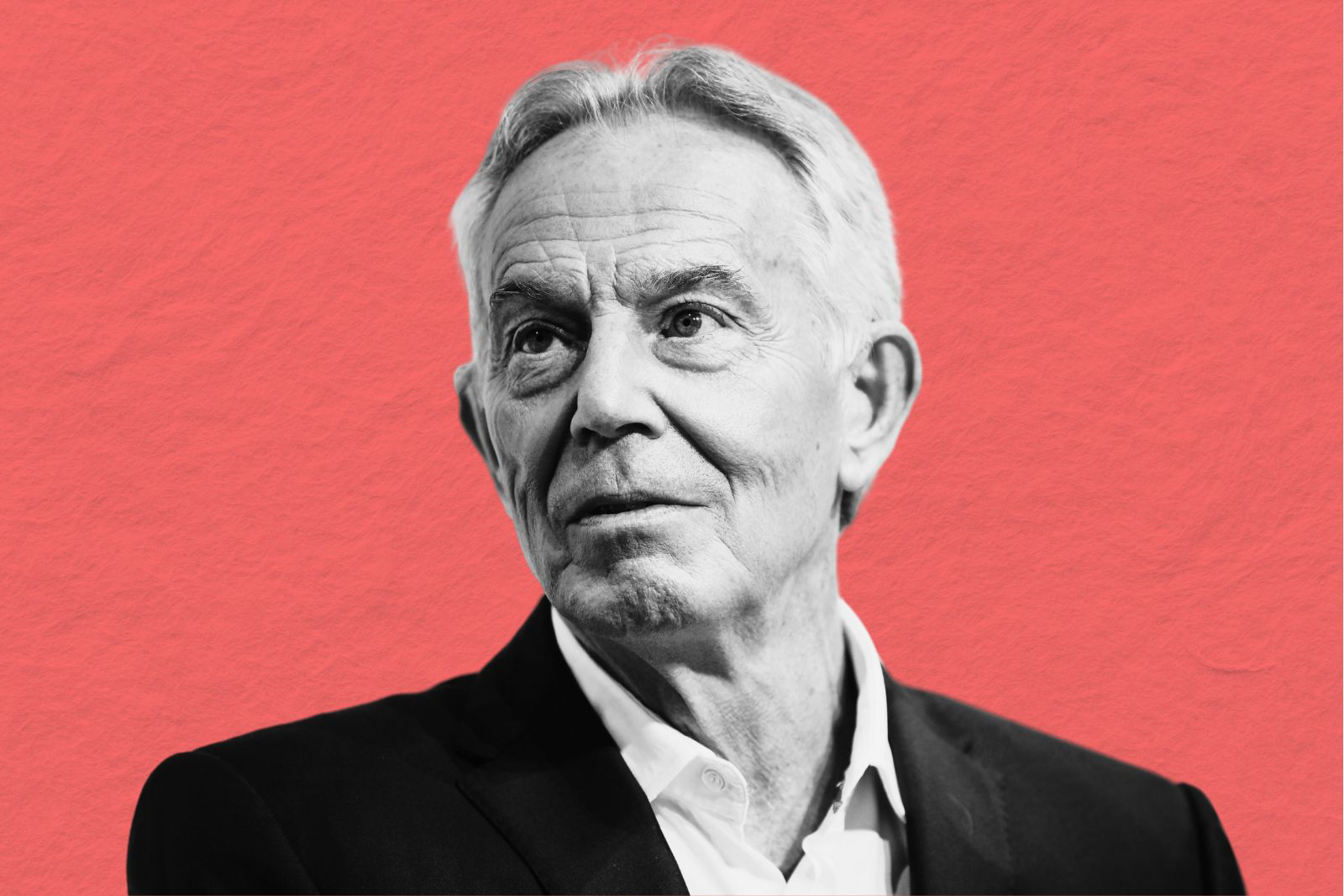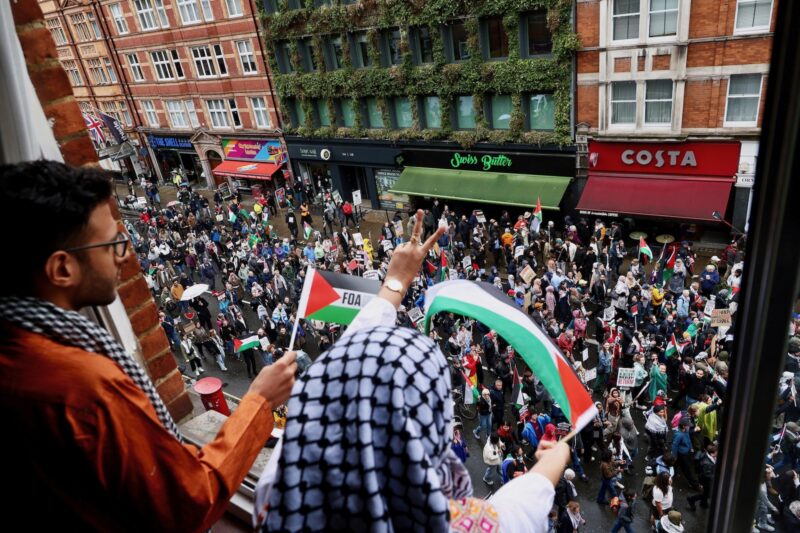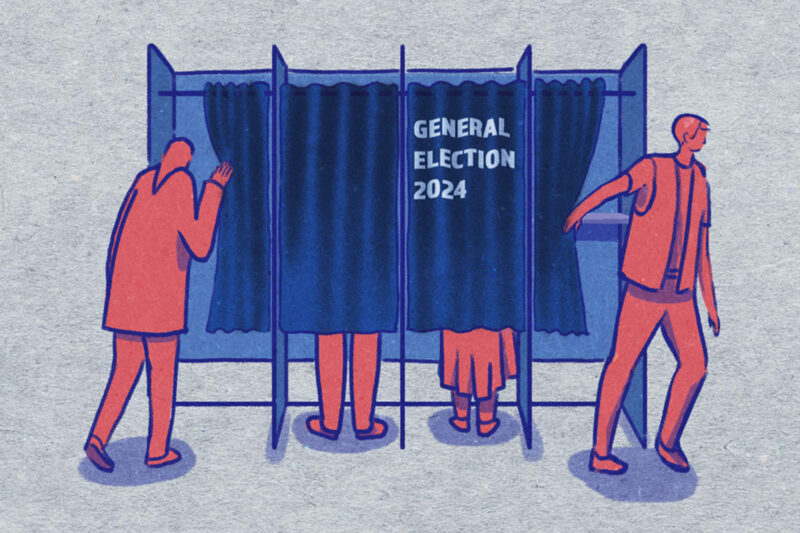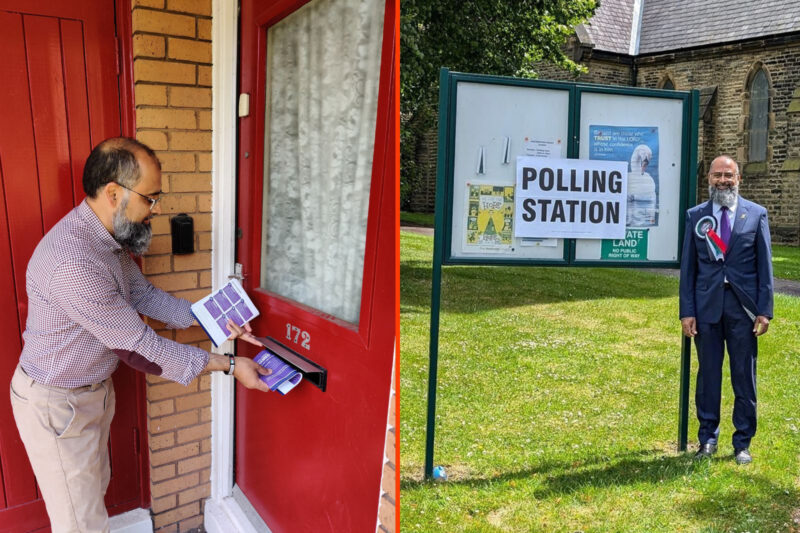Starmer should run a mile from Blair’s advice on Muslims
Britain’s former prime minister let racism and Islamophobia flourish. If Starmer wants to win back Muslim support, he can’t make the same mistakes

If there is anyone whose advice Keir Starmer should ignore when it comes to regaining the trust of Britain’s Muslim community, it is former Labour prime minister Tony Blair.
Blair allowed racism and Islamophobia to flourish in Britain. He introduced anti-terror legislation that disproportionately targeted Muslims — particularly men — and has continued to paint Muslims as extremists and talk about an Islamist threat to Britain in the years since. British Muslims remember the New Labour era as a time in which we were framed by politicians and national newspapers as a kind of “enemy within”, our British-ness and allegiance to Britain in constant question.
Yet Blair now styles himself as an expert on our communities, urging Starmer in a column for the Sunday Times: “We need a new tough new approach to law and order. At present, criminal elements are modernising faster than law enforcement. And the government should avoid any vulnerability on ‘wokeism’. There is also clearly a challenge in part of the Muslim community, but that is a topic requiring its own special analysis.”
This ambiguous sentence could mean a number of things. Blair could be referring to the challenge posed by the loss of Labour’s Muslim members and voters. He could mean the challenge posed by Muslim Palestine supporters, and the pressure they are exerting on Starmer and the Labour government to enact an arms embargo on Israel, to call for an immediate and permanent ceasefire in Gaza, and to review UK foreign policy on Palestine and Israel.
But given Blair’s history, it is more likely to be an implication that Britain’s Muslim community still poses a threat to the country’s stability, and that Muslims are alien beings requiring a unique approach. He mentioned no other faith community in an otherwise fairly wide-ranging column. As usual, Muslims are being singled out and treated as one of Britain’s “problems”.
Blair’s divisive language, if taken on board by Starmer, would do nothing to rectify the wrongs Britain’s new prime minister has committed over the last nine months regarding the war on Gaza. These include his notorious claim in an interview with LBC that Israel had the right to defend itself by cutting off water and electricity from Palestinians, and his threat to sack frontbenchers if they voted for a ceasefire in November 2023 (in the event, several quit before they could be pushed).
Former Labour MP Tom Harris said ahead of the election that Starmer could “safely ignore” Muslim community leaders and should resist pressure to adjust any of his policy positions purely to regain the votes of a minority group, because polls suggested that Labour was going to win anyway. His words were echoed by party activists in Burnley who spoke to Mike Makin-Waite for a report in Hyphen.
Losing the Muslim vote, though, has had an impact.
Last week, five seats that Labour had been forecast to win — Islington North, Leicester South, Blackburn, Dewsbury and Batley, and Birmingham Perry Barr — were lost to pro-Palestine independent candidates. In other areas with high Muslim populations, Labour’s vote share plummeted even in seats it still won. Election analyst Lewis Baston estimates that Labour lost 600,000 votes in areas with the highest Muslim populations between 2019 and 2024.
If Starmer was looking to place the blame on someone other than himself for the Muslim community’s growing disappointment with the Labour party, Blair would be the best person to point the finger at.
Blair took Britain into the US war in Afghanistan in the aftermath of 9/11, accounting for the deaths of 243,000 people, more than 70,000 of whom were civilians. He took Britain to war again in Iraq in 2003, resulting directly in the deaths of around 300,000 civilians — something for which he has refused to apologise. While some non-Muslim British citizens may not be concerned or affected by foreign wars, the Muslim community in Britain, which views itself as part of a global ummah (community), is very much hurt by British-led wars that kill hundreds of thousands of fellow Muslims abroad.
After the Conservatives took control of the country in 2010, Blair attempted to remain relevant by positioning himself as a global political strategist, aided by his Tony Blair Institute for Global Change. Rather than fade into the background like former PM John Major or take up painting like his best friend, former US president George Bush, he has kept himself in the spotlight, often through interviews and speeches that exacerbate tensions between the government and the Muslim community, and by fuelling Islamophobic rhetoric, speaking regularly to western media outlets about the threat of Islamism.
In 2014, Blair described the previous year’s military overthrow of the Egyptian Muslim Brotherhood government as “necessary”, yet remained silent on atrocities carried out by the new regime — among them the Rabaa massacre, when when as many as 1,000 peaceful protesters in Egypt were murdered in a single day by Egyptian military forces. He has repeatedly conflated the Muslim Brotherhood with extremism, even though a 2014 review commissioned by ex-PM David Cameron found the Islamic political party had largely “preferred” non-violence as a political strategy. As recently as 2017, he told leading Saudi newspaper Asharq Al-Awsat that he opposed the Muslim Brotherhood because it was a significant security threat to the west.
In 2015, Blair claimed that millions of Muslims around the world backed the ideology driving Islamic extremists and jihadis, yet in the same year, he also admitted that the US/Britain-led war in Iraq had been responsible for the rise of the Islamic State. A year later, Blair said that millions of Muslims hold a viewpoint that is “fundamentally incompatible with the modern world”.
Blair’s latest intervention indicates that he has not changed his anti-Islam position nor his perception of Britain’s Muslim community as a threat. And if Starmer wants to lead in the image of his predecessor, he will face a growing disenfranchised Muslim community that will continue to take its vote elsewhere.
To build bridges with disappointed Muslim voters, Starmer must disregard Blair’s advice and instead listen to Muslim MPs, councillors and community leaders who know the Muslim community best.
 Newsletter
Newsletter













